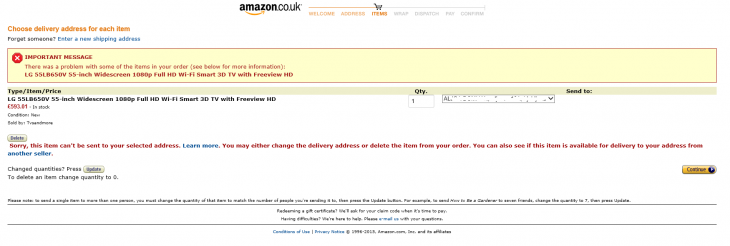The Myth of the Borderless European Digital Market

So I buy a subscription to my favourite TV channel, drive to the seaside… and realise my subscription doesn’t work there. The seaside is in another EU country, my computer connects to a different Internet service provider there and the copyrights I have bought are only valid in Slovenia.
If I go for a vacation to Croatia (which, by the way, has the nicest seaside in the EU http://croatia.hr/en-GB/Homepage), this does not mean that I am interested in their local commercials for cars and offers for smart phones with subscriptions. If I was interested in any commercials on my vacation, it would be commercials from the country where I spend most of my time and spend most of my money. I am certain that advertising agencies understand this. Unfortunately, it seems that those who write regulations and draw up copyright contracts do not. From the user’s point of view, the whole thing is rather stupid, but in reality, there is much more to it. What it means is a breach of my basic right to use what I have bought anywhere and anytime I want.
Europe (whatever this means these days) promises the following on this page http://europa.eu/pol/singl/index_sl.htm (and not only on this page), and I quote: “In the EU’s single market (sometimes also called the ‘internal market’) people, goods, services, and money can move around the EU as freely as they do within a single country – instead of being obstructed by national borders and barriers as they were in the past. EU citizens can now study, live, shop, work and retire in any EU country. Or we can stay at home and enjoy a vast array of products from all over Europe.”
Sending Goods to Africa Is Cheaper than Sending Goods to Slovenia
Well, of course. You can sit down at a computer anywhere in the EU, browse online shops and buy a thing or two. Oh, but wait, here comes the catch: you soon realise that if you buy a book from Amazon.com, the cost of delivering the same book to the Italian side of the town, called Gorizia, is at least 20 percent lower than delivering the book to the Slovenian side of the same town, called Nova Gorica. If you look at http://www.amazon.co.uk/gp/help/customer/display.html?nodeId=11072981, you will also see that Amazon UK charges lower delivery costs for delivering the same book to South Africa than to Slovenia.
Even worse is the feeling when a Finnish server rejects you and states: “No, we do not sell to your country, this product is available only for us, the Germans, the Italians, the French and the English.” Even the largest and most modern online store of all, amazon.com, refuses to sell a number of things to Slovenia. But they only tell you this at the very end of the purchasing process:

You are, of course, welcome to order the product as poste restante to the neighbouring Italy or Austria. The reason for all of this is, for the most part, not knowing consumer rights in individual countries and the connected risks.
When, finally, you realise that the delivery cost from an online store in Klagenfurt (Austria) to Ljubljana (Slovenia) is several times higher than the delivery cost from Lendava (Slovenia), which is quite a few more kilometres further to the east, you really have to ask yourself where is this mythological single internal market whose benefits I am supposed to fully enjoy as a citizen of an EU country. How come that not all consumers from EU countries enjoy the same consumer rights? The borders have been down for a number of years. Why am I being discriminated as a consumer from Slovenia?
The European politicians claim that the development of a single digital market is one of the most important generators of European economic growth. Within this framework, in 2013 they implemented the regulation on website cookies which has not increased the volume of European online sales, nor has it improved consumer experience. Cross-border online sales account for only 14 percent of online sales, while the European consumers happily shop in non-European online shops.
The New “Cookies”
In Brussels, they have been setting up an extensive legislative reform which is supposed to make the matters even more complicated in the next two years, defining (among other things) what is and what is not allowed in terms of e-marketing. By doing so, the EU aims to place an additional burden on the EU retailers, whilst enabling unfair competition of virtually all global providers on the EU market.
Just like in the case of cookies, one cannot get rid of the feeling that they do not have a clue about what they are doing. For example, Microsoft has revealed that every minute they block more than 10 million spam messages aimed at the e-mail addresses of their company. You cannot solve this with legislation.
A Single Digital Market
As of yet, when it comes to online and mobile sales and marketing, we can only follow the technological solutions of American companies. Making just a few clicks reveals that the story about the borderless single European (digital) market is a myth. The Americans have a single market with 300 million users, whilst in the EU we have 28 markets with around 500 million users.
To ensure a single European digital market, Jean-Claude Juncker and his team ought to ensure a single postal system, a single copyright system, equal rights as regards product warranties, consumer protection and other consumer rights, so that all consumers within the EU could really, finally, sell and buy under the same conditions. A market of 500 million people is the basis for starting to develop our own solutions and our own user experience, which should be supported with appropriate legislation. As things are at the moment, Europeans seem to be their own worst enemy.
Slovenska verzija http://aljosadomijan.com/bajka-o-velikem-digitalnem-evropskem-trgu/
One comment so far
Leave a comment
Make sure you enter the * required information where indicated. Comments are moderated – and rel="nofollow" is in use. Please no link dropping, no keywords or domains as names; do not spam, and do not advertise!





Pingback: Bajka o velikem digitalnem evropskem trgu | Aljoša Domijan